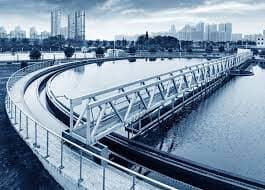Water, the elixir of life, sustains all living beings on our planet. It sustains diverse ecosystems, including humans and animals, and plays a significant role in nutrient cycling, transportation of materials, and weather patterns. However, the quality of water can be easily compromised by various factors, such as industrial activities, human waste, and natural disasters, which can lead to severe consequences, including the spread of diseases, loss of biodiversity, and economic instability. Therefore, monitoring and maintaining the quality of water is essential for safeguarding public health, preserving the environment, and ensuring sustainable development. In this blog post, we will delve into the critical benefits of employing water quality monitoring solutions, which include early detection of contamination, real-time data analysis, and efficient resource management.
Early Detection of Contaminants:
Early Detection of Contaminants:
Water quality monitoring solutions serve as vigilant guardians, detecting contaminants at their inception. From industrial effluents to agricultural runoff, these systems promptly identify pollutants, enabling timely intervention to mitigate risks.
Preservation of Ecosystems:
Preservation of Ecosystems:
Healthy water ecosystems are essential for biodiversity and ecological balance. Monitoring solutions aid in safeguarding aquatic habitats by tracking parameters such as pH, , and turbidity. By maintaining optimal conditions, these systems foster thriving ecosystems.
Public Health Protection:
Public Health Protection:
Access to clean water is fundamental for public health. Waterborne diseases pose significant threats, making real-time monitoring imperative. With monitoring solutions in place, authorities can swiftly address potential health hazards, ensuring safe drinking water for communities.
Regulatory Compliance:
Regulatory Compliance:
Stringent regulations govern , necessitating compliance from industries and municipalities. Monitoring solutions offer comprehensive data collection and analysis, facilitating adherence to regulatory requirements. By maintaining compliance, organizations uphold environmental stewardship and public trust.


Resource Optimization:
Resource Optimization:
Efficient water management is crucial for sustainable development. Monitoring solutions provide insights into usage patterns, , and distribution system performance. Armed with actionable data, stakeholders can optimize resource allocation, , and enhance operational efficiency. Explore and consult with experts for the latest technologies at
Crisis Preparedness:
Crisis Preparedness:
Water crises, whether due to natural disasters or human activities, demand swift response mechanisms. Monitoring solutions empower authorities with and early warning systems. By pre-emptively addressing issues, communities can mitigate the impact of crises and expedite recovery efforts. Get expert advice and take precautionary steps.
Data-Driven Decision Making:
Data-Driven Decision Making:
Informed decisions are pivotal for effective water governance. Monitoring solutions generate vast datasets, offering valuable insights into water quality trends and dynamics. Leveraging this data, policymakers, researchers, and stakeholders can devise evidence-based strategies for sustainable water management.
Public Awareness and Engagement:
Public Awareness and Engagement:
Raising awareness about water quality issues is essential for fostering a culture of conservation and responsibility. Monitoring solutions serve as educational tools, engaging communities in understanding the importance of water stewardship. By promoting public participation, these solutions empower individuals to contribute to water conservation efforts.
Water quality monitoring solutions play a vital role in safeguarding our most precious resource. From early contamination detection to fostering public awareness, the benefits are far-reaching and indispensable. By embracing these technologies and principles, we can ensure a sustainable water future for generations to come.
